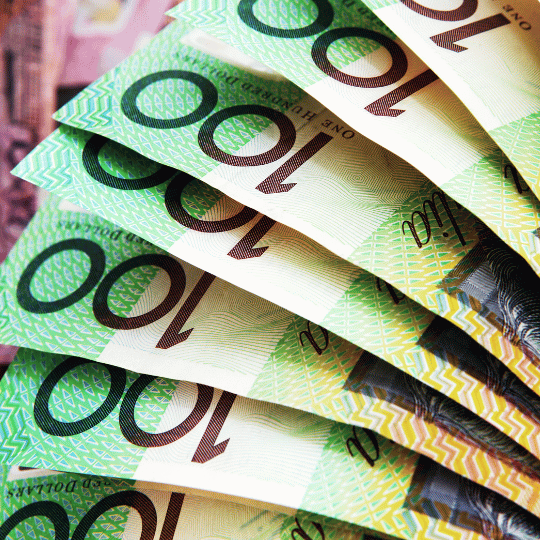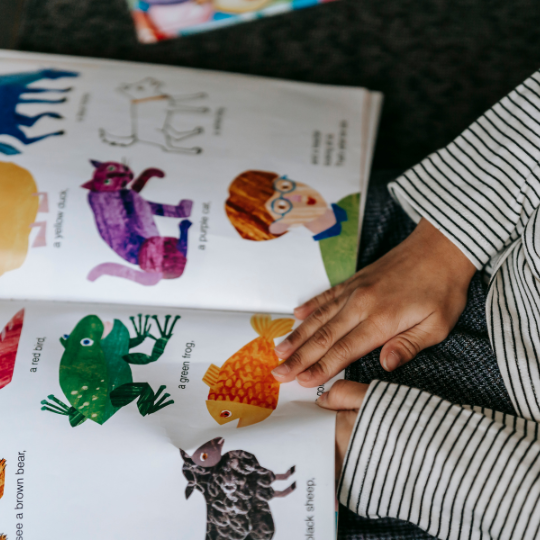
Do you have a bad conducting habit that's been annoying you for a long time? That thing that you remember once for 3 seconds when you're on the podium, then then next time you think of it is an hour later? Here's how to solve that problem, for good.
It's a new year and we're all thinking about how we can be better people, both professionally and personally. It's also the time of year we're haunted by the spectre of past resolutions that never eventuated.
We all know that for most of us, New Year's resolutions are a complete waste of time. A few days in (or weeks, if you've got grit), and we've lost steam and momentum. Our goals fall away, and all we're left with is a sense of guilt and some exercise equipment we need to put on eBay.
Hands up if that's you?
Yes, me too.
We need to build new habits, not make goal-based resolutions. We're usually guilty of falling off the wagon when our goals seem too distant, too big or too unachievable. But when we invest and plan a process for moving forward, we're much more likely to actually get the results we want. It's funny, because it's exactly what we tell our students: "Don't cram your practice just before the concert. A little bit each day is going to result in better long term results." Yet we're often pretty bad at applying this ourselves. I know I am.
So what can we do to build these new habits?
What are the negative habits that you'd like to replace with new, better ones? Here are some common ones:
Physical habits mirroring a lot with your left hand, bouncing at the knees, not breathing with the ensemble, nodding your head while conducting.
Preparation habits Not planning rehearsals, selecting inappropriate repertoire, not knowing the music.
Inspiration habits Not listening to great recordings, not reading books, not going to live performances.
What are the triggers that push you into your negative habit?
Physical habits Think hard and do some experimenting with your physical habits. Get up from your computer or phone and start conducting. Can you work out what is setting off your unwanted habitual movement? Maybe it's excess tension that's being transferred elsewhere in your body. Or it could be a particular movement (eg. beat 2 in 3/4; any prep beat) is triggering your habit.
Preparation habits Sometimes these triggers might happen well ahead of the habit itself, especially if the habit is related to planning. Maybe it's feeling rushed at the start of the year and not planning then, which causes problems weeks and months down the track.
Some common habits and triggers are:
Physical Habit: Swaying from side to side while conducting.
Trigger: Feet being unevenly weighted (or placed) when you first start conducting a piece or section.
Physical Habit: Head pulling back or nodding while conducting.
Trigger: Every time you breathe for a preparation, or every time you get to the last beat of the bar.
Preparation Habit: I leave my rehearsal planning to the last minute and always feel anxious and unprepared.
Trigger: Once I finish rehearsal I'm exhausted and I can't think about what I'm going to plan for next rehearsal. I don't have a long-term rehearsal plan for the term/semester/year.
Inspiration Habit: I don't go to concerts or see live music as much as I'd like.
Trigger: I don't plan or book in advance. When concerts come up I'm too tired or can't be bothered going out.
'Reward?' you say. 'But it's something I don't want to be doing!'
While it's true this is something we want to change, there is usually something that is keeping us stuck in the negative habit. We're getting some kind of pay off for repeating this behaviour.
This may be more challenging to work out for physical habits, but is often linked to where your attention is. If your attention is on the ensemble you can't focus on what you're doing physically. That's why you might remember to stop mirroring for a moment, then forget about it for the next hour, until you remember it again for a grand total of...3 seconds. When you don't focus on your gestures you're rewarded by being able to listen to the ensemble more.
For planning habits, the reward is probably because you're spending time doing something else instead. This might be another conducting-related activity - eg. 'I don't have time to score study because I need to plan my rehearsals'. Or maybe it's the less attractive 'I don't have time to score study because I'm catching up on episodes of my favourite Netflix show'.
This is a great opportunity to really look at how you're spending your time and prioritise what's actually important. If everything feel like it's #1 on the list, you might be confusing urgency with importance. We almost always prioritise urgent tasks over non-urgent ones, even when they're not actually important. You might also be putting something off because it feels hard. Get gritty and get into it.
Want more musical inspiration but not getting it? The reward might be that you're trading that time for something else valuable to you: relaxation, down time. If you feel like you're never 'off' then even going to an inspiring concert can feel like a chore rather than a delight.
I will spend 10 minutes per day working on exercises to gain more left hand independence and reduce mirroring.
Notice how this habit is S.M.A.R.T.:
Specific You're doing these exercises for 10 minutes
Measurable You either did it for 10 minutes or you didn't
Achievable 10 minutes a day is achievable for you
Relevant This is going to help you be clearer and more expressive on the podium and reduce mirroring
Time Bound Because we're creating habits, rather than fixed goals, we're using the time-bound to refer to how long you're going to do the habit each day
Hone in on the relevance part. What are the benefits of doing this new habit? What are the negative effects of not doing it (staying in your old habit)? These will help you understand your motivations, and connect your behaviour to your emotions. Go deep in visualising how it will feel when you do it (benefit) and how you'll feel if you don't (negative effect).
A note on physical habits. If you really want to change a physical habit, and do it quickly, you'll need to practice it away from the ensemble. As we mentioned earlier, often it's hard to change a physical habit on the podium, because we have so much to think about. Our attention is divided, and there's only so much we can focus on our gesture when there's also a group of musicians in front of us.
This means you might actually need to create two new habits to replace the old behaviour. One around regular conducting practice off the podium, and one around reminding yourself to do the new action when you are on the podium.
When will you do it? Think about when you want to enact the habit, and what things happen at that time that could be triggers. An easy way to integrate a new habit is to tie it to something you already do regularly.
Want to do score study every day? When I make my morning coffee I spend 10 minutes doing score study. Because there's no way you're missing that coffee!
Want to plan rehearsals ahead of time? When I finish a rehearsal I spend 10 minutes sketching a plan for the next one before I leave the rehearsal room.
What will the trigger be? They key take away here is to not rely on your brain. You can already see how that's turned out! Find an external source to remind you, whether it be a notification, a physical note, a physical item.
There are all sorts of apps for assisting in habit formation, that include game-based elements, cash riders - whatever works for you. Many of these feature notifications & alerts that will ping you to do the habit at a certain time. Great if you're looking to do it at a particular time each day, like the score study example above, or even setting it to remind you after rehearsal is over. These can of course be set up on all sorts of devices like smart watches, phones and computers.
If your habit is something you want to change while you're on the podium, use sticky notes and written reminders.
Want to reduce how much you talk in rehearsal? Make a bunch of sticky notes that say 'Use 5 words or less'. Keep one on the front of your conducting folder, one on your music stand, and put the rest randomly throughout your scores. The new habit will be front of mind far more often than if you just relied on your leaky brain. Stick them on the equipment you use too: your baton case, your computer, the whiteboard. The more the better. Going to try the coffee idea? Put a sticky note on the coffee machine!
We're more likely to stick to our habits if we're invested in how the change will make us feel. Envisage how you're going to feel when you do it, and what the benefits will be. For example, imagine yourself conducting like a pro with incredible left hand independence and how the ensemble will sound better as a result because you've practiced it. This is your positive incentive.
The other side is imagining how you'll feel if you don't do it. Those guilty feelings we mentioned earlier. Or that you'll feel you're not progressing, that your rehearsals are musical Groundhog Day. It's helpful to know what we're trying to avoid.
Download the free Conducting Habit Planner PDF to fill out your goals.
Once you're done, share your completed planner with us on Instagram by tagging @conductingartistry and using the hashtag #conductingartistryinaction

A true story about why we do what we do, and the power of music and process to transform ourselves, our ensembles and our audiences.

If Peter & the Wolf and Young Person's Guide are feeling a bit stale, spice up your children's programming with these delightful modern works for young audiences by living composers.